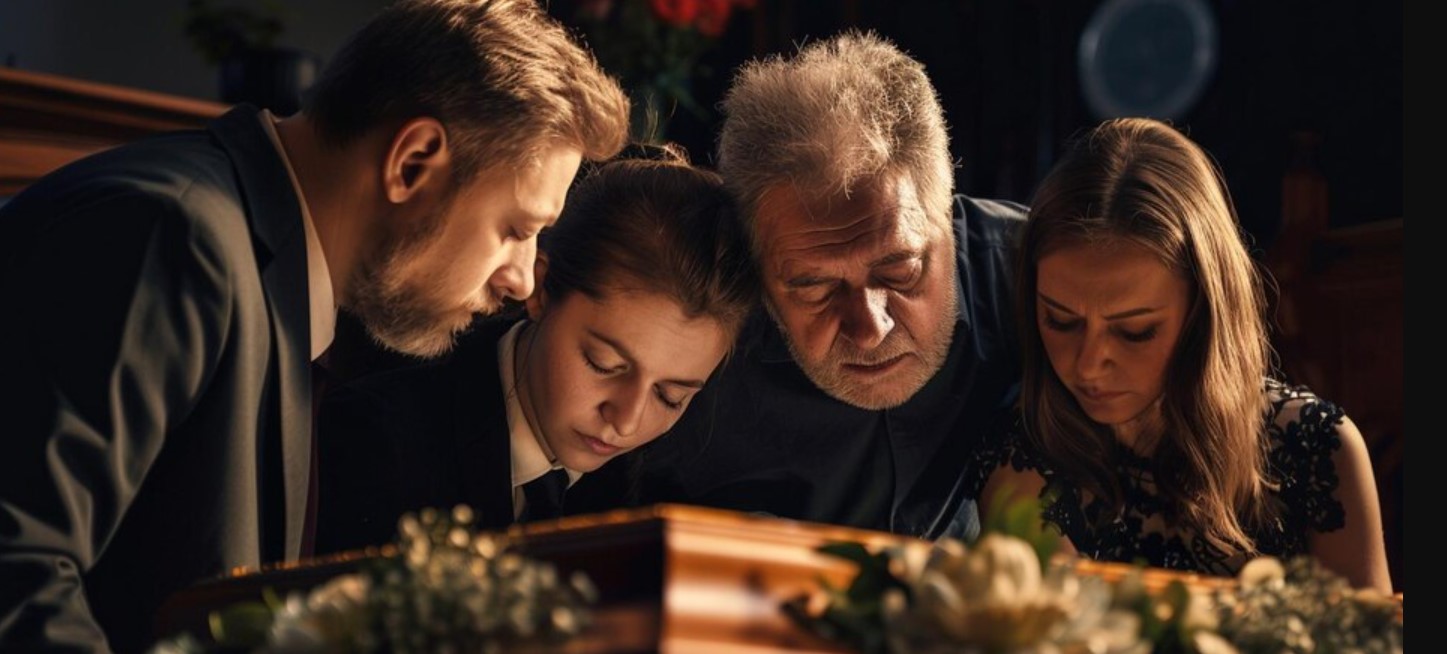Funerals are emotionally charged events where family and friends gather to honor the life of someone who has passed. While attending a funeral is an act of support and respect, it can also be an unfamiliar experience for many people.
Understanding proper funeral etiquette can help you navigate the event more comfortably and ensure that you’re providing meaningful support to the grieving family. In this guide, we will walk you through common funeral etiquette to show respect and compassion.
What to Expect at a Funeral
Funerals are a time for paying respects, offering condolences, and reflecting on the life of the deceased. They can vary in structure depending on the family’s traditions, cultural practices, or religious beliefs. However, most funerals follow a general format that includes several key elements:
- Visitation or Wake: This is an opportunity for friends and family to gather before the formal service. A visitation may occur at a funeral home, and the body may be present in an open or closed casket. Guests typically express their condolences to the family during this time. A wake is a similar gathering but may take place at a different location, such as a home, and often has a more informal tone.
- Funeral Service: The funeral service is the formal ceremony honoring the deceased. This can be religious or non-religious, depending on the family’s preferences. The service often includes eulogies, readings, prayers, or music. It’s important to arrive on time, dress appropriately, and remain quiet and respectful throughout the service.
- Burial or Cremation: After the funeral service, there may be a burial at a cemetery or a cremation ceremony. If a graveside service is held, you may be asked to attend and witness the final farewell.
- Reception: Many families host a reception after the funeral or burial, providing a time for guests to gather, share stories, and offer their condolences in a more relaxed setting. This is an opportunity to further show support to the grieving family.
The Role of Funeral Directors in Coordinating the Event
Funeral directors are responsible for managing many of the logistical details of a funeral. They ensure the service runs smoothly, assist the family with decision-making, and ensure that all cultural or religious traditions are followed. Whether you’re attending the service or offering assistance to the family, it’s important to recognize that funeral directors play a key role in coordinating the event.
They may help arrange the service, communicate with attendees, and ensure that everything is in place, from seating arrangements to transportation. If you are unsure about specific protocols or how to show support, funeral directors can often provide guidance, helping you better understand how to navigate the event respectfully.
How to Show Support at a Funeral
Supporting the grieving family during a funeral is an act of kindness and empathy. There are many ways to offer your support, whether through your presence, words, or actions. Here are a few tips on how to show meaningful support at a funeral:
1. Offer Condolences Thoughtfully
When approaching the grieving family, offering sincere condolences is the most direct way to show support. A simple phrase like “I’m so sorry for your loss” is appropriate and comforting. If you knew the deceased well, sharing a brief memory can also offer comfort. However, avoid giving lengthy stories or making the conversation about yourself. Keep the focus on the family and their loss.
2. Respect Cultural and Religious Traditions
Different cultures and religions have various customs when it comes to funerals. Before attending, it’s important to familiarize yourself with any specific traditions that may be observed. Some services may have prayers, rituals, or other practices that are unfamiliar to you. Participate respectfully, even if it is outside of your own beliefs. If you are unsure about the customs, observing the actions of others and following their lead can be helpful.
3. Dress Appropriately
Funeral attire should be respectful and conservative. While black is traditionally associated with mourning, other dark or muted colors are also acceptable. Avoid flashy or bright clothing, as well as overly casual attire like jeans or t-shirts. Dressing appropriately shows respect for the event and the grieving family.
4. Be Mindful of Personal Space
Funerals can be overwhelming for grieving family members, so it’s important to be sensitive to their emotions and personal space. While offering hugs and physical comfort may be welcomed by some, others may prefer a simple handshake or quiet conversation. Pay attention to body language and cues from the family to determine what level of contact is appropriate.
5. Stay for the Reception
If you are invited to a post-funeral reception, try to attend if possible. This gathering provides a more informal setting to connect with the family and share memories of the deceased. While you may not need to stay for the entire event, your presence during this time can further demonstrate your support and provide additional comfort to those in mourning.
Offering Help Beyond the Funeral
Showing support doesn’t end when the funeral service is over. In the days and weeks following the funeral, the family may still need assistance as they cope with their grief. Here are a few ways to continue offering support:
- Check-In Regularly: A quick phone call, text, or visit can remind the grieving person that they are not alone. Be mindful of their emotional state, but also let them know you’re there for them.
- Offer Practical Help: Grieving families may be overwhelmed with tasks, such as organizing belongings, managing household duties, or handling paperwork. Offering practical help, like preparing meals or helping with chores, can alleviate some of their burdens.
- Listen: Grief is a long process, and sometimes all a person needs is someone to listen. Being available to talk or simply offering a quiet presence can be an immense comfort as they work through their emotions.
Honoring a Life with Compassion and Respect
Attending a funeral is more than just a social obligation—it is an opportunity to honor a life and support those left behind. By understanding funeral etiquette, you can ensure that your actions are respectful and meaningful. Whether it’s offering condolences, dressing appropriately, or understanding cultural traditions, each small act of respect makes a difference to the grieving family.





